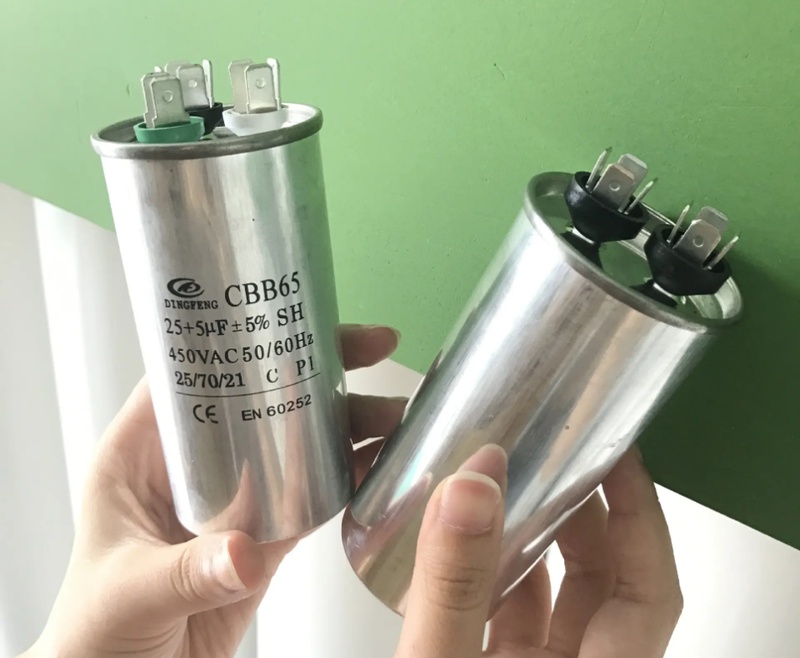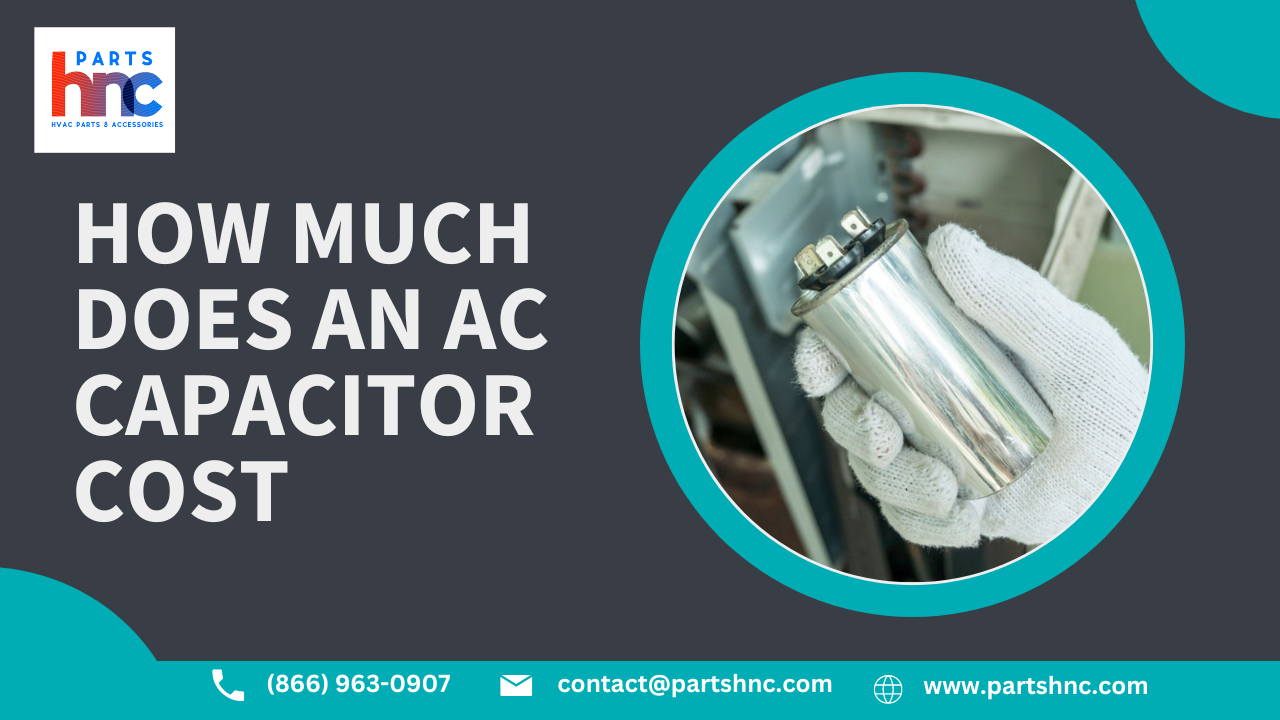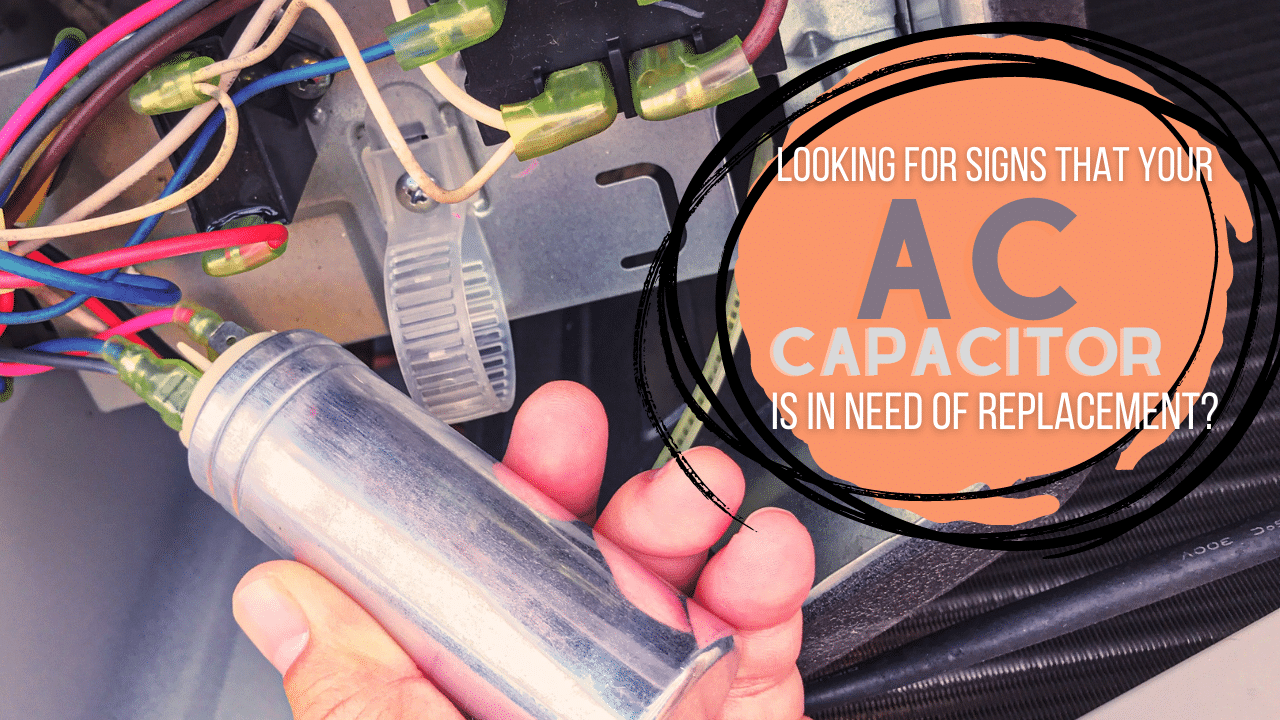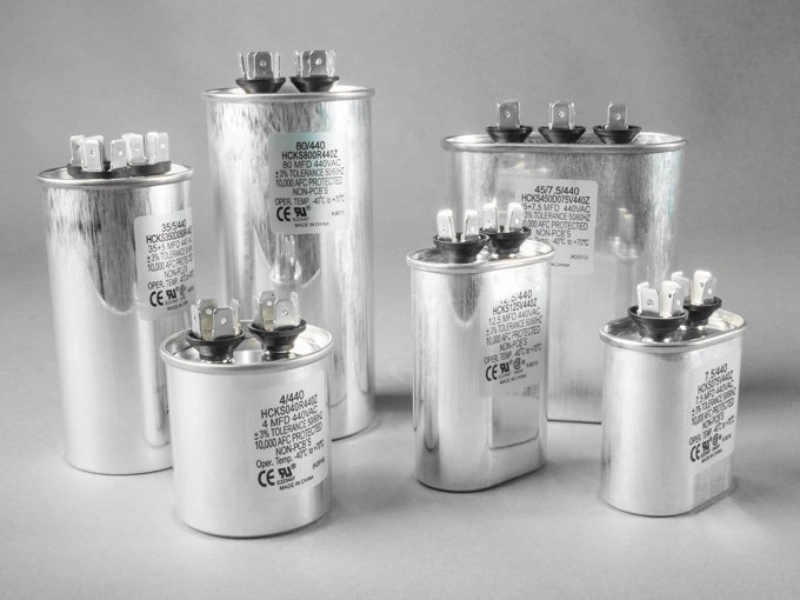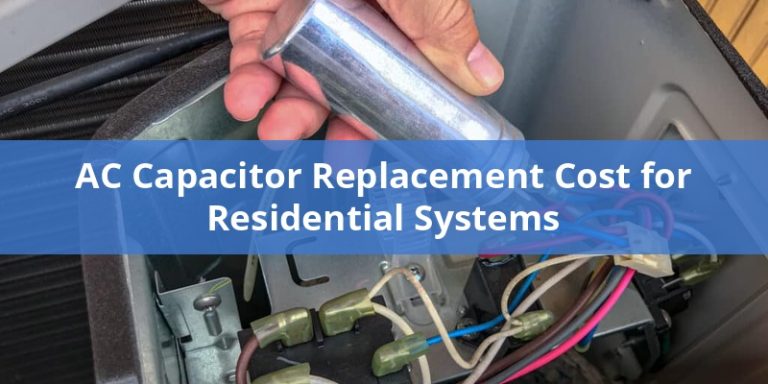Home Ac Capacitor Cost

Air conditioning is essential for comfortable living and working, especially during peak summer months. However, a malfunctioning AC unit can quickly lead to discomfort and unexpected expenses. One of the most common culprits behind AC problems is a failing capacitor. Understanding the costs associated with replacing this crucial component can help you budget effectively and make informed decisions about your HVAC system.
What is an AC Capacitor and Why Does it Matter?
An AC capacitor is essentially a small, cylindrical energy storage device that provides the initial jolt of electricity needed to start the AC's motors – both the compressor motor (the heart of the cooling system) and the fan motor. Think of it as a battery designed to deliver a powerful burst of energy. Without a functioning capacitor, the motors won't start, rendering your air conditioner useless. There are typically two types of capacitors in an AC unit:
- Start Capacitors: These provide a high-energy jolt to start the motor. They are only in use for a brief period during startup.
- Run Capacitors: These provide a continuous boost to the motor while it's running, improving efficiency and reducing energy consumption.
A failing capacitor can manifest in several ways: the AC struggles to start, makes a humming noise but doesn't kick on, or cycles on and off frequently. Ignoring these signs can lead to further damage to the compressor, resulting in much more costly repairs or even a complete system replacement. Regular HVAC maintenance, as recommended by Energy Star guidelines, can help identify capacitor issues early.
Factors Influencing AC Capacitor Replacement Cost
The cost of replacing an AC capacitor can vary significantly depending on several factors:
Type of Capacitor
Start capacitors generally cost less than run capacitors due to their smaller size and simpler design. A typical start capacitor might range from $15 to $40, while a run capacitor can range from $20 to $80, or even higher for specialized models. These are the component costs alone.
Capacitance and Voltage Rating
Capacitors are rated by capacitance (measured in microfarads or μF) and voltage. Higher capacitance and voltage ratings mean a more powerful capacitor, which usually translates to a higher price. The correct capacitor must be selected based on the AC unit's specifications. Using an incorrect capacitor can damage the motor and void warranties. Check your AC unit’s specifications plate or consult with an HVAC professional.
Labor Costs
Labor is a significant component of the overall replacement cost. HVAC technicians typically charge an hourly rate, and the complexity of the job will determine the number of hours required. Simple capacitor replacements might take an hour or less, while more complex scenarios, such as difficult-to-access units or the need to diagnose other underlying issues, can take longer. Expect to pay anywhere from $75 to $200 per hour for professional HVAC service, depending on your location and the contractor's experience.
Location
Geographic location plays a role in both labor and material costs. Areas with a higher cost of living generally have higher labor rates. Additionally, the availability of parts can influence pricing; if a particular capacitor is hard to find in your area, it may cost more. Always get quotes from multiple local contractors to compare pricing.
HVAC Contractor
Different HVAC contractors have different pricing structures. Some may charge a flat fee for capacitor replacement, while others charge hourly. It's crucial to get multiple quotes and compare not just the price, but also the contractor's experience, reputation, and warranty offered. Look for contractors who are NATE-certified (North American Technician Excellence), as this indicates a higher level of training and expertise.
Accessibility of the Unit
If the AC unit is difficult to access (e.g., located on a high roof, in a cramped attic, or behind obstacles), the labor costs may increase. Difficult access adds time and complexity to the job, requiring extra safety precautions and potentially more manpower.
Average Cost Breakdown: DIY vs. Professional Installation
While it might be tempting to replace the capacitor yourself to save money, it's generally recommended to hire a qualified HVAC technician. Capacitors store high-voltage electricity, and improper handling can be dangerous, even fatal. Additionally, incorrect installation can damage your AC unit and void the manufacturer's warranty.
DIY Replacement (Not Recommended for Most)
- Cost of Parts: $15 - $80 (depending on the type and specifications)
- Tools: You'll need a multimeter, insulated screwdrivers, and safety glasses. If you don't already own these, you'll need to factor in the cost.
- Time: Even if you know what you're doing, it can take an hour or more.
- Risk: High risk of electrical shock and damage to the AC unit.
Professional Installation
- Cost of Parts: $20 - $100 (contractors often mark up parts slightly)
- Labor: $75 - $300 (depending on the complexity and location)
- Total Cost: $150 - $400 (or higher for complex jobs)
- Benefits: Safe and proper installation, warranty on parts and labor, peace of mind.
Given the risks and potential for further damage, professional installation is almost always the better option. Furthermore, a qualified technician can diagnose other potential problems with your AC unit, preventing future breakdowns.
Signs Your AC Capacitor Needs Replacing
Being aware of the warning signs can help you catch a failing capacitor early and prevent more serious damage:
- AC unit struggles to start: The motor may hum but fail to start.
- AC unit cycles on and off frequently: This is known as short cycling.
- AC unit blows warm air: Even if the compressor is running, a weak capacitor can prevent it from operating efficiently.
- Humming noise from the AC unit: This indicates the motor is struggling to start due to insufficient power.
- Visible damage to the capacitor: Bulging, leaking, or corrosion are clear signs of failure.
If you notice any of these signs, contact a qualified HVAC technician for an inspection.
Extending the Life of Your AC Capacitor
While capacitors eventually fail, there are steps you can take to extend their lifespan:
- Regular AC Maintenance: Schedule annual or bi-annual maintenance checkups with a qualified HVAC technician. They can inspect the capacitor and identify potential issues before they lead to a breakdown.
- Keep the AC Unit Clean: Clean the outdoor unit regularly to remove debris that can restrict airflow and cause the capacitor to overheat.
- Ensure Proper Ventilation: Make sure the AC unit has adequate ventilation. Restricted airflow can cause the motor to work harder and overheat the capacitor.
- Use a Surge Protector: Power surges can damage capacitors. Consider using a surge protector for your AC unit.
- Install a Soft Starter: A soft starter reduces the initial surge of electricity required to start the AC motor, which can prolong the life of the capacitor.
Smart HVAC Integration and Energy Savings
Integrating your HVAC system with smart home technology can also contribute to energy savings and potentially extend the life of your components, including the capacitor. Smart thermostats, for example, learn your preferences and automatically adjust the temperature to optimize energy usage. Features like geofencing (adjusting the temperature based on your location) and scheduling can prevent the AC from running unnecessarily, reducing wear and tear on the capacitor.
Furthermore, some smart HVAC systems include sensors that monitor the performance of various components, including the capacitor. These sensors can detect early signs of failure and alert you to potential problems before they escalate. This proactive approach can save you money on costly repairs and prevent unexpected breakdowns. You can also integrate data from smart energy monitors to understand how your HVAC usage affects your monthly bills, allowing you to make informed choices.
Rebates and Incentives
Many utility companies and government agencies offer rebates and incentives for energy-efficient HVAC upgrades. Check with your local utility company and the Energy Star website to see if you qualify for any rebates on new AC units or energy-efficient components like soft starters or smart thermostats. Taking advantage of these programs can help offset the cost of upgrading your HVAC system and save you money in the long run.
Conclusion
Replacing an AC capacitor is a common repair, but understanding the factors that influence the cost can help you budget effectively and make informed decisions. While DIY replacement might seem tempting, professional installation is generally recommended to ensure safety and proper operation. By prioritizing regular maintenance, considering smart HVAC integration, and taking advantage of available rebates, you can extend the life of your AC unit, reduce your energy consumption, and save money on your utility bills. Don't forget to research local HVAC contractors and request quotes to get the best possible service and price.
